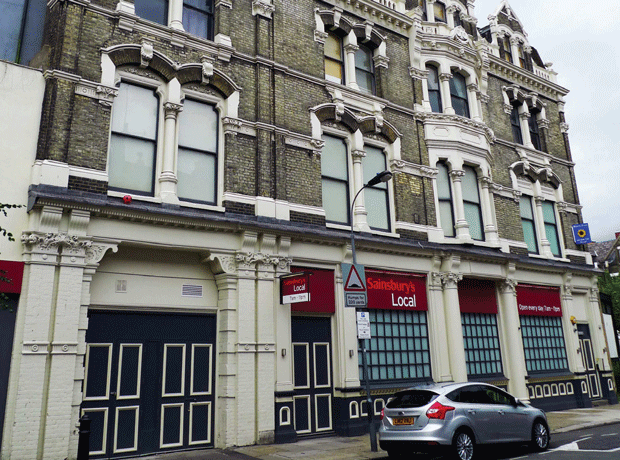Shadow small business minister Toby Perkins pitches the opposition’s case to C-Store readers, who he says would be better off under Labour.
Can you convince our readers that you are the party for small businesses?
We’ve set out our direction of travel, now we need to set it out in policy terms. We’ll help create a local banking infrastructure to support small businesses that are struggling with access to finance, we’ll offer a cut and then a freeze in business rates in the first two years of office. It’ll save 1.5 million businesses £400 a year. We’ve also mentioned [freezing] energy prices and giving local authorities more say about local communities.
How exactly would your local banking proposals help small businesses?
It would be similar to Germany, where local bank managers make local decisions and have a relationship with small businesses. First, local decision-making is a key principle of it. You have a bank which is only able to deal with its local area. Its success is entirely wrapped up with the success of its local community, so it has a commitment to its area which national banks don’t tend to have at the moment.
Second, it’s about relationship banking that people were used to historically and many small businesses say they miss - it was about having a relationship with a person they considered to be a decision-maker. They had people who understood the community and the businesses they were responsible for making decisions on behalf of, who understood more than just spreadsheets and growth matrixes.
Government is always about priorities and our priority is about small and medium-sized businesses. It is fundamentally dishonest to keep cutting corporation tax and then expect small businesses to pay business rates.
It would be about setting up a network of banks, probably on a licence basis where you would have one for each geographical area that would only be responsible for lending in that area. Organisations - be they private sector, public sector or private-public partnerships - could apply for one of these licences.
Can you clarify your position on business rates?
There were two very significant increases in 2012 and 2013. The government has only announced a reduced increase for 2014. Small businesses will be very pleased that the government has noticed business rates have become a huge amount and they’re grateful the increase was 2% and not 4.5%. Nonetheless, it was an increase and under a Labour government they would see a reduction back to the level that it was prior to the 5% increase [implemented in 2012] in the first year, and then a freeze in the second year. So in 2017 their business rates bills will actually be lower than they are now.
That’s funded by not taking forward the planned 2015 corporation tax fall for firms with profits over £300,000.
What do you say to those who argue you’re taking from Peter to give to Paul?
You can say the same about the government’s policy of keeping on increasing business rates and cutting corporation tax. Government is always about priorities and our priority is about small and medium-sized businesses.
We would still have 21% corporation tax, one of the lowest in Europe, so it’ll still be a very attractive level of corporation tax, far less than in Germany and France and most other major EU competitors. But we think that in a time when business rates are in some cases outstripping rent, it’s fundamentally dishonest to keep cutting corporation tax and then expect small businesses to pay business rates.
So would you fundamentally reform business rates?
Business rates will be under review, as will all levels of taxation. And I think there is a need for a fundamental review of the level of corporate taxation that comes from property tax. We have the highest level of corporate property tax in Europe and the lowest level of corporation tax, which suits some businesses and not others, but is often very disadvantageous to your readers.
Would you tighten up the National Planning Policy Framework to give more protection to town centres?
We’re currently consulting on exactly how that would operate. But the key principle is that local authorities are in charge of their own destiny, and that communities are in charge of their own destiny and able to make decisions.
But are local authorities incentivised enough to put town centres first? One consultant said it was ‘quicker, easier and cheaper’ to approve out-of-town planning applications.
Every local authority I speak to has a close attachment to their town centre and wants to see it survive and thrive, but they also come back to us and say ‘what tools have I got at my disposal?’ It’s very difficult for them to have much say in how their town centres look. I think we’ve lost the skill of town centre planning and management because of the drive that anything that anyone wants to build in the name of growth will happen. We want to give them more say about what their town centre looks like, and that’s what we’re consulting on.
Do you think the grocery multiples have too much market share, and is it something you want to address?
Tesco, in particular, has a real focus on being in every single community now, and we’ve never even had a debate about whether it’s something we welcome or are concerned about. I’m absolutely clear that Tesco and Sainsbury’s have in many ways offered a good deal for consumers, but do we want to see an ever greater amount of our food being bought from a very small number of players? We’ve seen markets become dominated by three or four very powerful players, such as in banking, and it hasn’t tended to be good for consumers in the long run. So I think there is a real question about that.
Obviously, if too large an amount of our food is purchased from a small number of providers, it also greatly limits suppliers.
There are independent chains and franchise chains who offer a really important offer on the high street, such as Spar, Londis and Budgens, and I’m anxious about them getting frozen out.
Is there a way of restricting the multiples from opening whenever they want on the high street?
This is an important part of our review. One of the things I’ve been very conscious of is the number of pubs that have been taken over and turned into supermarkets. That can happen without the community having any say. That can happen even if the pub is successful in its own right if the pub company decides it wants to get more income. I think people will accept it if the pub isn’t being used, but if a successful pub is being taken over because the building’s worth more as a supermarket, then that does pose a challenge to us as a society and it’s exactly the sort of thing our review into planning policy ought to consider. We want local authorities and communities to have more say, rather than just getting a notice saying ‘this is what we’re going to do and you can comment on the size of our car park, but you can’t comment on whether it happens’.
Has the Mary Portas initiative worked?
I sense she’s disappointed. She had some interesting ideas, but she wasn’t given enough support. We’re working closely with [former chief executive of Wickes and Booker] Bill Grimsey on a different review of the high street and we’re anxious that it is debated. We will take some of his ideas forward, but it’s too early to say which ones.
The fundamental principle which ran through the Portas review was a greater say for local communities, but that’s dependent on the capacity and resources of local government. It’s difficult on one hand to say we want local authorities to have a greater say and on the other hand deliver 40% cuts in local authority budgets.
If you want local authorities to take a more fundamental role in the way town centres look then that has to be backed up in terms of infrastructure, resource and planning legislation.
Do you agree with Portas’ recommendation for all out-of-town applications to be called in by the Secretary of State?
That just says the Secretary of State knows best rather than the local authority. And what’s the reason to believe the Secretary of State is going to be better able or more likely to respond to the needs of the community than the local authority who rely on the votes of the community every year?
What’s your view on tobacco plain packaging?
We think it’s a way of contributing to discouraging young people from thinking smoking is glamorous. I don’t buy the idea that it would add to the counterfeit problem, we’ve got a mammoth counterfeit cigarette problem at the moment and actually reproducing the box is not a very difficult thing to do. With plain packaging, the holograms would be the hardest part to replicate. We think plain packaging will have a significant role to play in preventing young people from taking up smoking.
Would Labour introduce minimum unit pricing for alcohol?
We were supportive of minimum pricing and think we will continue to be. We’ll have a more coherent alcohol policy in which minimum pricing will play a part. It’s about recognising that we do have a small number of problem drinkers, and cheap, high-strength alcohol plays a role in that problem.
Would Labour cut VAT?
We were advocating this in the time of the great stagnation and we’ll always see it as a regressive tax and we’ll always want it to be lower. Historically, it’s always been the Conservatives who have increased it. We would see VAT as a key frontier.
Has the government got anything right when it comes to small businesses?
Micro-businesses no longer need to report finances in the same way as they used to, which is incredibly positive - and incidentally came from Europe - and it’s positive that the government in recent weeks has agreed with us and brought down business rates. They’ve spoken about helping small businesses, but in policy terms small businesses would say they haven’t had much. We’d like to see a bit more action to back up what the government has said.
What has government got most wrong?
The big increase in rates has been a major problem. The weakening of local authorities has had a big impact on their capacity to determine what their areas look like. There’s a sense they’ve bowed to big business pressure in a variety of ways, which has been detrimental to the interests of society and small businesses - and also the failure to get access to finance.
























1 Readers' comment